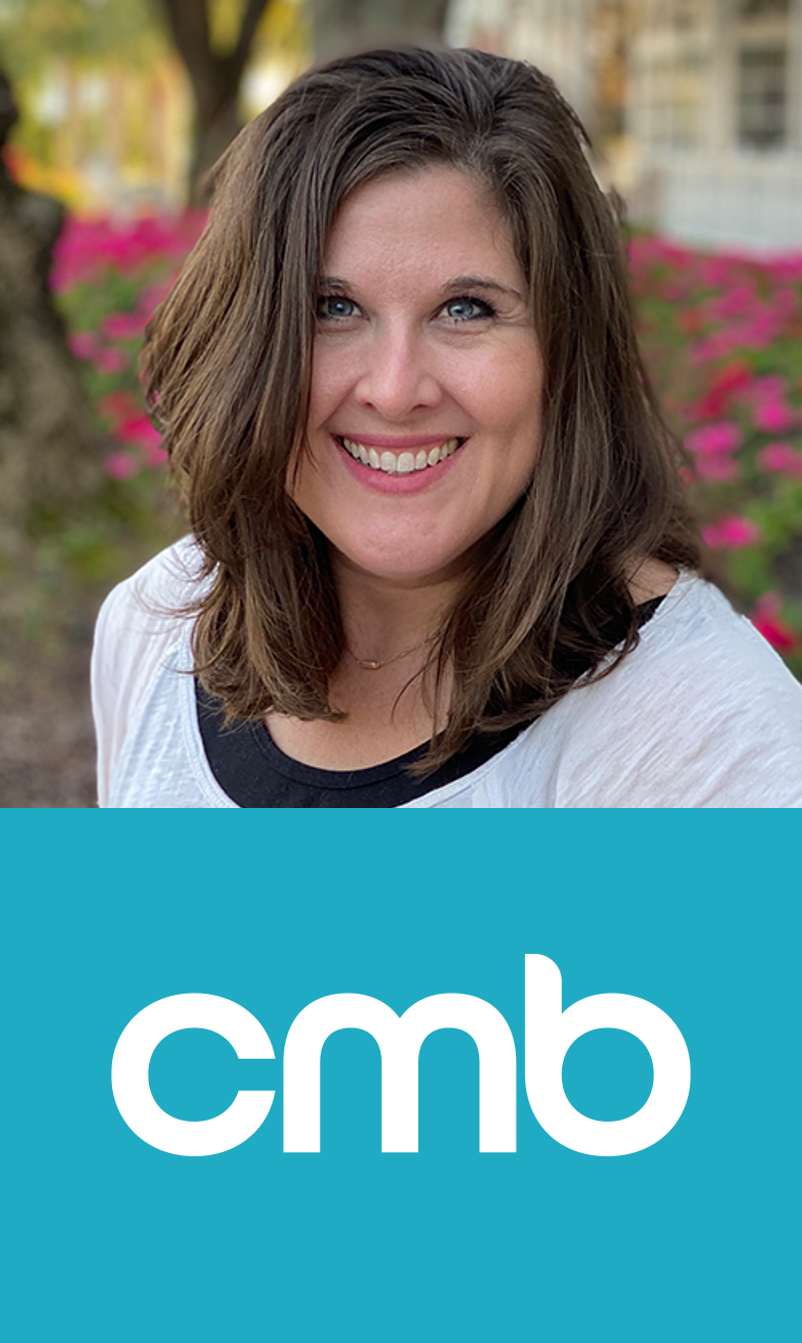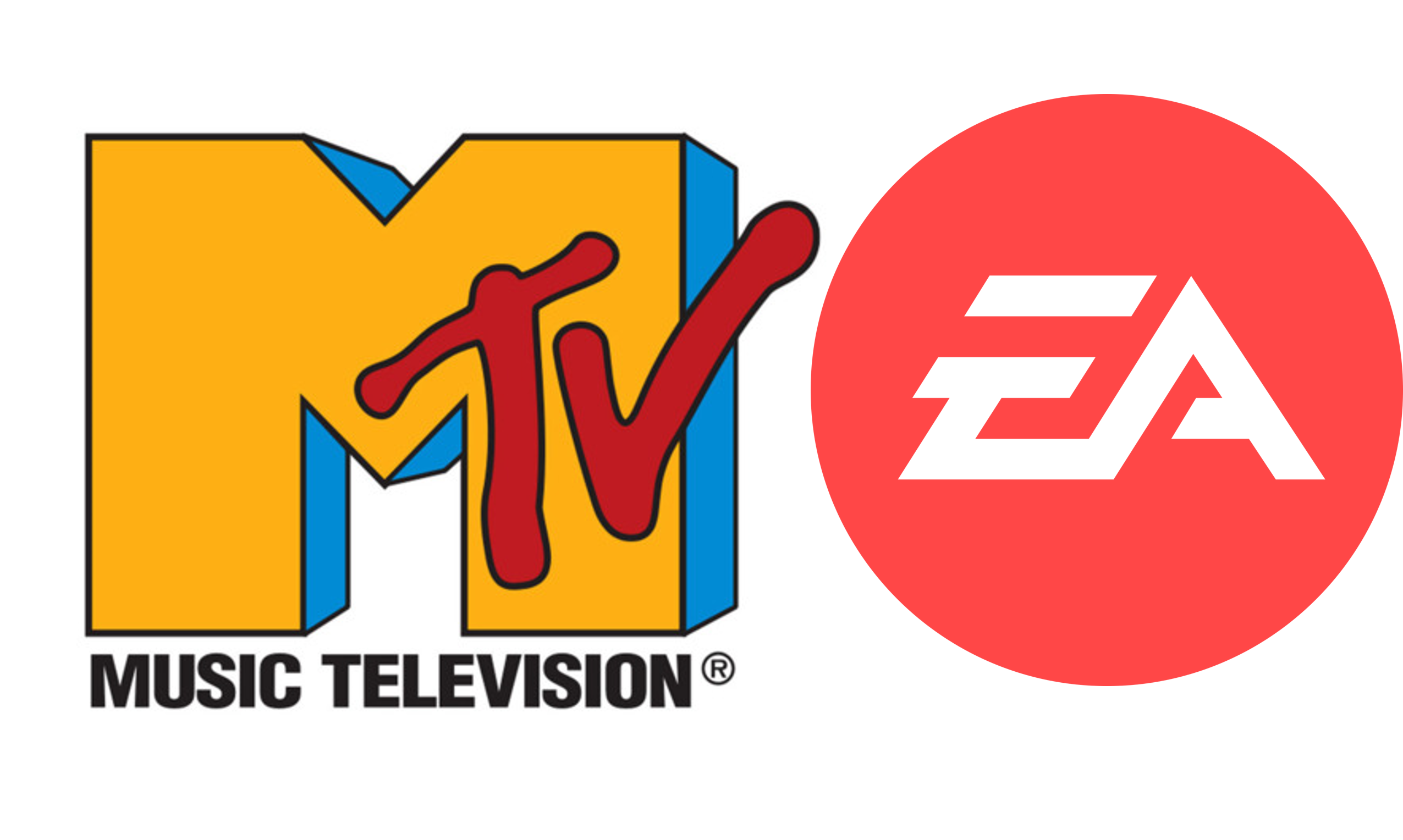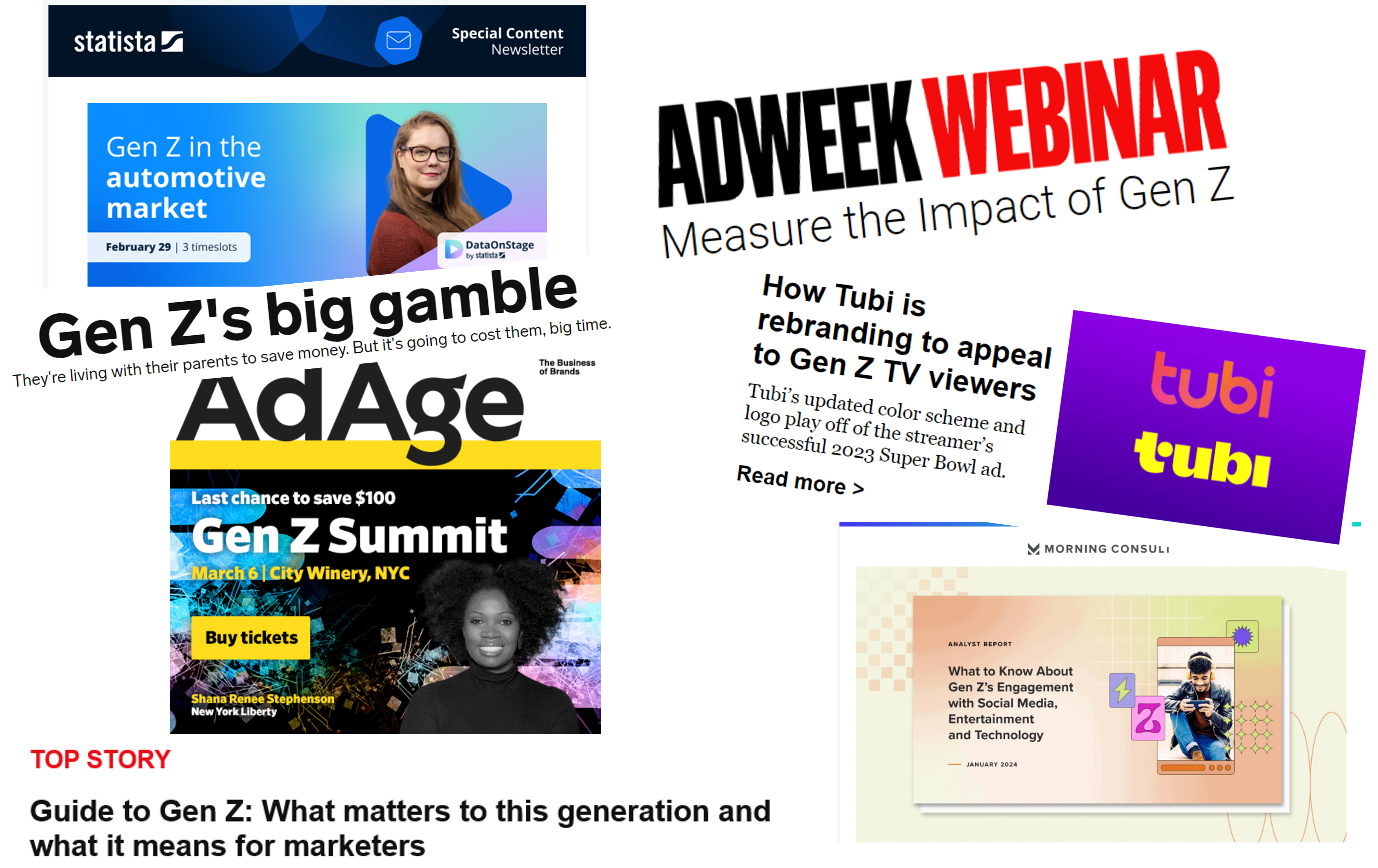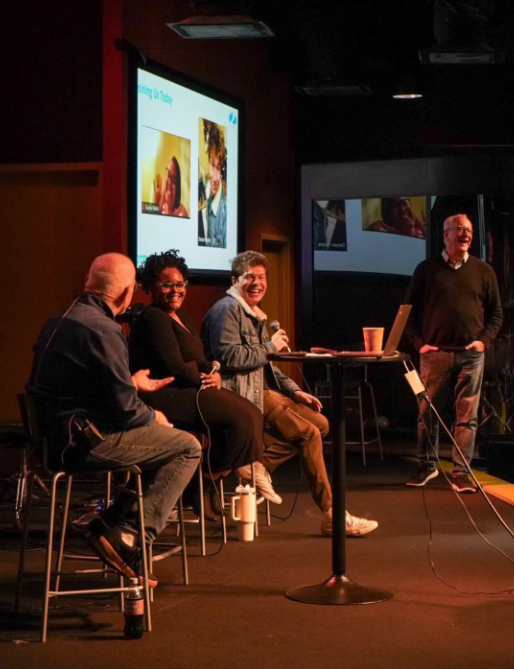
I’ve got a hunch I’d like to share with you.
It stems from the acceleration of strategic work we’ve been doing the past couple years. Even in the opening act of 2024, we have been spending time working side by side with radio broadcasters across platforms – commercial, public, and Christian stations. And we’re working with stations owned by media companies of all sizes, across many different geographies. From big public companies to mom and pops. From local stations to networks.
And the common thread is that many broadcasters have reached the point where they’re questioning everything. Many of the assumptions that made up radio’s “collective wisdom” have been dashed by the roiling media waters of disruption. Music stations are attempting to ascertain the roles they serve in a digital environment where brands like Spotify and YouTube have gained in stature and influence. Whereas broadcast radio has always played a paramount role in music discovery, that “given” has eroded to a point where many music stations are questioning their role in the media ecosystem.
On the public radio side of the radio spectrum, it’s been a tough time. The NPR News stations have seen their ratings rocked. Many have uncharacteristically had to institute painful staff and budget cuts. And the foundations of the system are being questioned by all corners, whether it is fundraising and the continued efficacy of “pledge,” or the disappointments revolving around investments in podcasting that have not yielded the desired result.
Christian stations have enjoyed their share of success. In turbulent times, many have sought out the solace and security of these stations where faith is the foundation. As people endure tragedies and setbacks, these stations often provide a sense of peace and calm.
Across these various radio station categories, managers are pushing back on the ratings – and not just because they’ve gotten stuck with a lousy book. Stations wonder about methodology, PUMM levels, sample sizes – in short, the efficacy of the ratings – period. More and more openly ask about the value proposition of traditional audience ratings in 2024, especially given their expense. Some are beginning to imagine what radio life might look like without ratings.
All told, broadcasters that run radio organizations in the U.S. are doing something they have never done before:
Many are beginning to question everything – including the key assumptions that have served as the pillars of this business.
And I’m not just talking a company here or a CEO there. As the radio tentpoles have become more fragile and shakier, both executives and members of the radio rank-and-file seem to be more empowered to challenge some time-honored assumptions. In the past, I’ve worked for my share of Machiavellian executives who have purposely tested their managers and consultants to assess their intrinsic belief in a philosophy, system, or “ism.” Today, they are legitimately asking appropriate questions for which there are no simple or easy answer.
As uncomfortable and disconcerting as this can be – after all, stability, consistency, and dependability are all valuable assets – there is also something essentially healthy about not accepting a status quo that is proving to have significant weaknesses. And many are not playing Devil’s advocate for the sake of measuring commitment levels. They are seriously pondering how radio broadcasting can thrive, much less survive in the current environment.
And so we are seeing bolder moves and more experimentation, as well as hearing a higher frequency of “What ifs?” coming from all corners of increasingly empty radio station office spaces where the combination of WFH and RIF has reduced many staffs to a scary low level in this unstable, post-pandemic, queasy time in which we’re living.
WFH and RIF has reduced many staffs to a scary low level in this unstable, post-pandemic, queasy time in which we’re living.
Against this backdrop, some very smart, prescient broadcasters are thinking well outside those corrugated cardboard cubes. They’re trying to stimulate conversation and innovation in an industry where the muscle memory for these types of activities has frankly become pretty flabby over the past decade or more.
Last month, I told you about a couple broadcast executives who are making some interesting moves in the Gen Z arena – a place where few have deemed to go. They are creating their own versions of youth movements in the hope of testing the waters and creating infrastructures where teens and twentysomethings are welcomed, respected, and considered integral to radio’s future – because that’s exactly who they are.
You may have read the post about KDKA-FM has dusted off overnights, installing a team of college students from nearby Pitt to create a late night ecosystem – a station within a station. Market manager Michael Spacciapolli is actually creating a cluster farm team, an innovation rare to radio across the board in the U.S.
 And then there’s Michelle Younkman, executive director of the Christian Music Broadcasters. This association has an impressive roster of member stations. But CMB’s gold members are a special group, in fact so special that Michelle creates an annual two-day gold member gathering for this group. It’s like a graduate degree for these executives that include management, programming, digital, marketing, and other key players at these stations and companies.
And then there’s Michelle Younkman, executive director of the Christian Music Broadcasters. This association has an impressive roster of member stations. But CMB’s gold members are a special group, in fact so special that Michelle creates an annual two-day gold member gathering for this group. It’s like a graduate degree for these executives that include management, programming, digital, marketing, and other key players at these stations and companies.
Twice now, she has tapped Jacobs Media to collaborate with CMB to develop these fly-ins. We’ve learned they are akin to getting a master’s degree for these participating gold member stations.
Two years ago, the theme was the “connected car.” Michelle chose Detroit as the appropriate host city for the event. Paul and I put together an agenda of auto experts from inside and outside the radio broadcasting industry. By all accounts, it was an eye-opening couple of days where we were thrilled to see how many CMBers truly enjoyed their time and experiences in the Motor City. (And we got to sleep in our own beds!)
This year, it was about “generations.” Michelle’s aim was to foster a dialogue about younger generations and their connection (or lack thereof) to radio. But because CMB stations are mission-driven, faith-based operations, they have a unique relationship with their audience.
For this year’s gathering, the goal was to get CMB gold members into the heads of younger Christians to study their motivations, their faith journeys, and how radio fits into that matrix. Prior to the gathering in suburban Dallas at the Covenant Church, me, Paul, and my daughter Allie conducted three Zoom focus groups among listeners in the Gen X, Millennial, and Gen Z groupings. We used the same basic discussion guide for all three groups, looking for common threads, but also key differences that distinguish each generation. I interviewed the Gen Xers and Millennials, while Allie’s assignment was to chat with the Zs.
The format worked splendidly. We put together videos of each generational group as part of the three different presentations. And then to make it even more interesting, rich, and personal, we brought back a handful of these focus group respondents to join us on stage at the gold member gathering to continue the conversation, as well as to dialogue and engage with CMB member station managers.
The format worked splendidly. And while three focus comprised of respondents from a particular generation is what I refer to as “research with a small r,” the exercise was insightful and stimulating. Yes, the assumptions we and the 125 or so participants made need to be confirmed with hard data. But we were treated to storylines most of them – as well as Paul and I – don’t often have a chance to experience.
assumptions we and the 125 or so participants made need to be confirmed with hard data. But we were treated to storylines most of them – as well as Paul and I – don’t often have a chance to experience.
Especially with the Zs. In 40 years of running Jacobs Media, I can count the number of times we were tasked to interview teens on a couple hands. Most came out of our work with MTV in the ’80s, as well as a project or two for Electronic Arts, the video game makers. But for radio, zip, zilch, nada, zero.
a project or two for Electronic Arts, the video game makers. But for radio, zip, zilch, nada, zero.
And Michelle was bound and determined to see that streak come to an end.
I knew when we watched Allie conduct the focus group among our teens. At the very beginning of each session, we always go around the “Zoom room” to have respondents introduce themselves. It’s good to hear from them describe their lives in just a minute or so, and it also serves as an icebreaker.
Allie selected a young woman named Jana to start the process. And after she completed the task, she asked Allie, “Can I popcorn?”
I’m sitting there dumbfounded, and immediately texted Paul, “What the hell does ‘popcorn’ mean?” And before he could respond with a “WTF?” Jana was calling on the next person in the group to do their bio. And that person selected the next person until the intros were completed.
After the group, we asked Allie to interpret, and she told us it’s a classroom term where students get to choose who goes next. As old people often say, “Who knew?!”
And that’s the point. Most of us working in radio in 2024 would’ve had no idea what “popcorn” means, along with any number of terms, idioms, slang, expressions, and characteristics unique to a generation we might only come into contact with as a result of family interactions.
The fact is, pretty much everything most of us know about Gen Zs is written in marketing articles – and there’s no shortage of those. As I scan my inbox every day for newsletters, communiques, webinars, summits, and alerts from various marketers, publishers, and trades, it seems just about every other serious player isn’t just interested in the Gen Z mindset – they perceive young people as consumers of the future – five years from now, next year, or next week.

Except us.
Our two onstage Gen Z reps were ALarria and Daryan, both of whom were articulate, serious, and introspective young people trying to find their place in a turbulent world. But they were also entertaining, eager to talk about what sets them apart from their older sibs and/or their parents.
As it pertained to their faith and spirituality, we found them – and their other Gen Z mates – to be even more thoughtful than the older cohorts included in this generational sandbox we created for CMB. How they related to Christian music radio as well as the other media at their disposal was a key part of their narratives, along with their perceptions of technology and media in our society.

Both Paul and I came away with the thought that either ALarria or Daryan would have made fascinating employees for “our radio station” – brighter, more connected, and considerably more knowledgeable about their world than we were at the same age.
Recruiting them for their group and the onstage appearance at the CMB event wasn’t easy. In fact, it turned out to be a challenging task. It became especially difficult to entice the Gen Z focus group respondents to return to participate in the live interview with us, even with a generous incentive. Those who begged off explained they had to be at their jobs on a Wednesday morning in late February. While I suspect those excuses were legit, it also occurred to me they might not value the chance to talk radio with a bunch of older people.
The process and architecture Michelle dreamt up and the reality Paul, Allie, and I made happen was a good one. CMB’s gold members in attendance seemed riveted by what was presented, and looked truly stimulated by these two-day meetings. As membership benefits go, this one seemed like a great use of their time – and money. I’m hopeful when they returned to their stations a few days later, some interesting conversations took place about the efficacy of talking to Gen Zs in the future.
But for the rest of radio, I fear we’re already well down the road of waiting too long and missing the moment. I am confident that in the years ahead, talking to teens may be as “mainstream” for radio as streaming or having a mobile app is now. Let’s not forget how the industry has often taken a “wait & see” attitude on new technologies and so-called “out of the box” ideas and innovations – to its own detriment.
Many would say it’s too late anyway; that Gen Zs have left the party (or never showed up to begin with), preferring brands like Spotify, YouTube, and others. Radio – it’s for their parents or grandparents.
Talk about a wasted opportunity.
And yet, we do not know whether for radio, the Gen Z ship has sailed. Is there any programming content, personalities or local coverage that could ever get them to sample the FM band?
Please don’t start telling me about radio’s amazing reach. The rosy story making the rounds yesterday from Nielsen about radio’s growing reach is really more of a testament to television’s collapse.
the rounds yesterday from Nielsen about radio’s growing reach is really more of a testament to television’s collapse.
And if you read the story carefully, the “happy data” from Nielsen is all derived from 18 and over demographics. Go ahead and search for “teens” or “Gen Z.” They are nowhere to be found in this very optimistic report.
I started off this post talking about how I’m sensing the beginnings of an openness to innovation and new ways of thinking.
Whether radio pivots on Gen Z may tell the tale – not just about how radio is evolving and adapting, but how it is surviving.
No matter your format or radio platform – music, talk, public, or Christian, the Day of Reckoning approaches. You will have to account for the Gen Z and their Gen Alpha compatriots whether it’s to your board, your shareholders, or your advertisers.
And the solutions may, in fact, not live in the world of frequency modulation if today’s media habits are too deeply engrained. But none of that prevents today’s broadcasters from creating new content on different platforms for these legions of teenagers. It’s how brands like Spotify, Twitch, and TikTok were all created – starting with teens and working their way older to reach adult generations of consumers.
Come to think of it, that’s how a lot of radio formats first got going in the ’70s, followed by MTV in the ’80s.
And if you’re looking for an interpreter or visionary who can Sherpa through the tall grass that stands in the way of you talking to teens, shoot me an email. I know a couple of smart ones who are eager to tell their stories.
Pass the popcorn.
- The Rock Hall’s Most Egregious Snub Yet? - May 16, 2025
- Attention Tech And Entertainment Writers: Don’t Mess With Radio! - May 15, 2025
- 3 Socio-Economic Shifts Every Radio Programmer And Seller Should Be Aware Of - May 14, 2025




Like you perhaps, Fred, I feel like a termite on a lumber truck: I don’t know where we’re going, I’m just along for the ride. But if today’s blog had a soundtrack, it would be Marty Balin’s “Better Generation.” Worth a listen or three if you’re not familiar with it. Then consider it was written more than 30 years ago.
As Carole King said….”It’s too late baby, it’s too late…….”
That thought has crossed my mind, Mark. But we won’t know unless we actually do something.
It’s absolutely true that there’s no shortage of Gen Z-focused research and articles from marketers and advertisers. To add to that pile, here’s a write-up from today…
https://www.agilitypr.com/pr-news/public-relations/unlocking-gen-zs-secrets-new-marketing-research-seeks-to-unravel-the-mystique-of-this-digitally-adept-bleakly-hopeful-but-powerful-spending-group
It is amazing how much of these resources are available every day. It reinforces just how out of step our industry is. Thanks, Eric.
There are a ton of HD channels around. Which company will be the one to create a Gen Z Channel for teens (or we can call them young adults). That means getting Gen Z’er to be the Program Director/Brand Manager…not just finding talent to do shows. And I’ll bet that when they pick the music there will be some “classic” surprises to go along with “new” music. I have 10 grand kids, many who are teens or just out of teenage years and I love the variety of music they’re enjoying.
Mark, when it comes to uding HD2s as sandboxes, I cannot for the life of me understand why has taken so long. We might want to bring some of those young Chernoff spinoffs into the room as consultants. And thanks to movies, video games, and sporting events, there wil no doubt be some “classic surprises.”